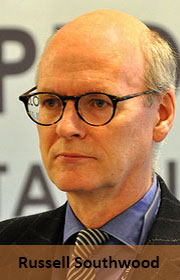 The business logic is clear; only the timing remains to be settled. Everything in telecommunications, including voice, will soon be data.
The business logic is clear; only the timing remains to be settled. Everything in telecommunications, including voice, will soon be data.
In a world where everything is data, there will be two types of companies. And they will not be mobile operators. There will be content companies and there will be data companies. Everyone will want to be a hybrid of these two, but for reasons that will become clear later, it’s not easy to be half pregnant.
The clearest articulation of the new content narrative by a mobile operator comes from the emerging markets-focused operator Millicom. It has appointed a former broadcast executive (from its sister company MTG) to a senior position and is rolling out content services like a white-labelled version of Deezer (very successfully already in Colombia and now coming to Africa), and wants to get involved in digital terrestrial television and triple-play services.
Alongside all this, Millicom has made an investment (as has MTN) in start-up company Rocket Internet and opened a small start-up incubator in Rwanda. It understands the payment channel is currently a barrier and is looking to address this.
Whether it will succeed or not with this strategy is not a clear, but it has wrenched some strategic clarity out the changing universe it finds itself in.
By contrast, the signals from elsewhere in the industry are not good. A big content producer at AfricaCom, who is in “dialogue” with MTN and Vodacom, said both will launch video-on-demand content plays shortly. Neither will contain enough content to compete with DStv, and neither will do anything about data prices to help the market adopt the products.
Another person again confirmed that “a big mobile operator” will be launching imminently. This company has apparently bought content on minimum guarantees (where money has to be placed upfront before they get to use the content) and management is pressuring the team to make use of what they’ve bought because of the amount invested already. Interestingly, the network engineers were not consulted and are having conniptions about whether the infrastructure will be able to take the strain.
I moderated a panel at AfricaCom called “Monetising content: what strategies for the digital age in Africa?” To spare the blushes of the panellists, I will refer to them by their company names, but you can look them up. The panel had two mobile operators (Airtel and Vodacom), a broadcaster-invested free-to-air platform (e.tv-owned Platco Digital), a digital advertising agency (Apurimac Media) and a digital publisher and ad sales agency (Olé Media).
I asked the panellists to imagine what the market would be like in five years and what kind of percentage deals they saw evolving in the market – in other words, what percentage of the money in the value chain would stick to them?
Platco wasn’t able to answer.
The Airtel representative didn’t want to answer and spoke about developing the ecosystem and partnerships.
The Apurimac Media representative also walked gently round the question, but then said 50/50. The audience broke into a round of applause for this response.
The Vodacom representative was quick to point out that it was a content company, but he articulated with great clarity the dilemma of being one. He said its way of doing content had to be kept simple because it was also a bank (through offering m-money services), an insurance company (through an increasing number of customers for m-insurance products) and a voice and data business. So, to keep it simple, it was buying its content from aggregators who offer catalogues of content.
This almost perfectly replicates the already unsatisfactory relationship between SMS aggregators and mobile companies. You outsource the content curation to a third party and therefore leave the key business decisions to that third party. The very content choices that might differentiate you significantly from others doing the same thing are left in the hands of third parties. As with SMS, the content aggregator catalogues are all a bit “samey”.
He did say that they were investing in infrastructure to deliver content, but that getting this infrastructure right and getting a return was a significant challenge.
I then asked the Airtel representative where the power lies in the negotiation between the content owners and the mobile operators. I was told this was the wrong question, so I asked another: what was the premium content Airtel would be looking for?
And here the firm’s representative wandered off into a logical cul de sac. He said that Airtel will not be looking for premium content as they paid all content owners (and their representatives) equally.

The basic rules of the content business state that the author who sells more books gets paid more. The music artist whose song sells better gets paid more. The TV producer whose series gets more audience gets paid more. You get the general idea. So, why would a mobile operator wanting to differentiate its content offer from its competitors imagine that this informing principle would not apply to them?
While waiting to go onstage for the panel, a man from Orange leaned over and asked me during the presentation by Arun Nagar of Spice Africa: “What do you think of music services?” He then proceeded to tell me he didn’t think much of them. There is already a ringtone music business worth several hundreds of millions of dollars across the continent and your company owns a share in Deezer. What’s not to like?
In the bad old days, when I started Balancing Act 15 years ago, there were the (generally state-owned incumbents) who found themselves challenged by the mobile operators. In the more competitive economies, it drove them to make efficiency savings and in many cases to make drastic cuts to the number of employees they had. The mobile operators are the new incumbents.
In the first of the over-the-top vs mobile operator sessions, the MTN representative came in guns blazing, saying he was not going to end up as a dumb pipe and no one was going to take away their ability to derive income from the value chain. In the Ulster fashion, he was getting his retaliation in first. No one has any God-given claim to the value chain and if operators would provide cheap, ubiquitous bandwidth, they would have plenty of customers.
Sadly, all this testosterone-heavy, macho posturing is meaningless and he has not grasped how the power has shifted. Facebook can afford to be diplomatic as it already has a relationship unmediated by the mobile operator with its significant customer base. Its decision to work with the more intelligent mobile operators (who might also not be dominant players in their markets) is a sign it understands the bigger picture. For data to succeed in Africa, there needs to be content and services that will attract more people to use it. As one of the largest over-the-top services Facebook has a key role to play in this task.
In the old days, African users were so grateful that effective communications had arrived in the form of the mobile phone that they had only to open the window and the money simply poured in. The challenges were considerable but the returns were above average.
The dilemma for the mobile operators is that data requires significant new and continuous investment in infrastructure yielding lower returns. Therefore, some operators need to focus on producing bandwidth that is actually lower cost than elsewhere globally.
Spice Afric’s Nagar talked about mobile operators needing to think about what was the income yield per megabit, which is a useful way to think about getting better returns. The man from Orange had left the auditorium by this point.
The success of voice in Africa was a supreme act of improvisation to overcome structural obstacles. Diesel is still delivered by boat and wheelbarrow in parts of Liberia. The diesel costs and delivery charges for it in Nigeria are staggering. As a result, Africa is significantly more expensive at many levels than elsewhere in the world.
Until the mobile operators concentrate on addressing this problem, they will be trapped by lower margins and the steady loss of any control over the value chain. On current evidence, they have not yet articulated a strategy to address the hole they find themselves in.
- Russell Southwood is head of Balancing Act Africa




